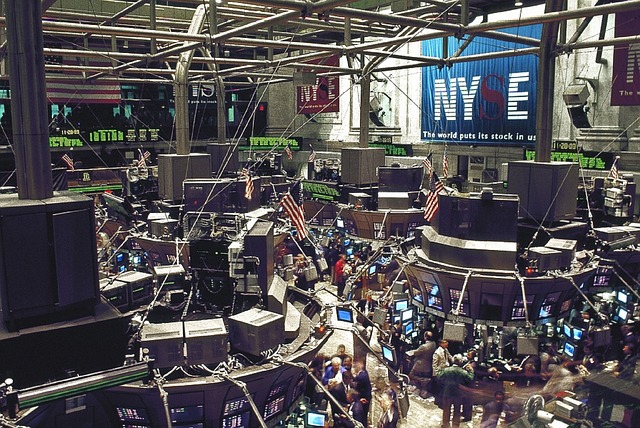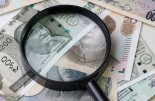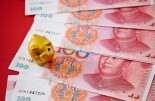Swissquote Bank: GameStop, speculation taken to the next level
Swissquote Bank: GameStop, speculation taken to the next level

By Ipek Ozkardeskaya, Senior Analyst at Swissquote Bank
Major US indices around the world have been shattered since Tuesday. The S&P500 (-2.08%), the Dow (-2.57%) and Nasdaq (-2.61%) slipped more than 2%, after an ugly European close pushing the Dax and the FTSE 1.80% and 1.30% lower respectively.
Better-than-expected Apple and Tesla results slowed the sell-off in US stock indices in Asia, but couldn’t reverse losses. The Nasdaq futures trade 0.49% down at the time of writing.
But not all stocks lost.
Retail traders declare war against Wall Street giants
The hot topic of the week is the revenge of heavily shorted stocks by the Wall Street traders, as retail traders buy massive amounts of these stocks to send these companies’ shares through the roof. GameStop is one of the lucky winners of a short squeeze frenzy that no one saw coming. A company that only few knew before this week just hit the jackpot as investors piled into the stock aggressively, without a reasonable cue, to push its price from near $40 to $372 in three trading sessions. The only apparent motive behind the move was speculation against Wall Street.
The last news about GameStop was the company’s plans to close 450 stores due to massive losses as sales shifted massively online due to the pandemic. Then, a miracle happened.
To understand why investors rushed into the GameStop shares, we should dive a little deeper into its past. GameStop is a 37-year-old company announced mass closures last April. By then, its stock price was near $3 a share. Things started gaining traction in September, when Ryan Cohen, the founder of the online pet food shop Chew, bought 13% stake in the company and pushed GameStop to go online and rival Amazon. This is when Wall Street investors decided to bet against GameStop, shorting its stock which traded circa $10. As such, more than 70 million of GameStop shares have been shorted.
Normally, all should have gone well. GameStop rivalling Amazon was nothing more than a mouse showing its teeth to a bear. Fundamentally, there was little hope to see GameStop shares getting their head above water ever again, when all of a sudden, retail investors rushed into the stock. The move resulted in massive losses for big Wall Street investors who bet against the company, a major sigh of relief for GameStop and flashy red flags regarding the disconnect between what’s going on in the stock markets and the underlying reality.
The frenzy even caught the attention of Janet Yellen, the US Treasury Secretary, as the non-sense behind the story certainly rang the alarm bell regarding the efficiency of the massive monetary and fiscal support, which resulted in a huge amount of cash in the market, that clearly doesn’t flow well to the real economy, but instead create increasingly disquieting anomalies in the markets.
If it is still possible to find some explanation when big tech stock prices rally frantically – such as soaring pandemic-induced demand, better-than-expected results quarter after quarter or the potential to grow bigger, it’s much less the case when failing businesses’ do.
The GameStop story tells us one more thing: investors are ready to buy anything as long as they make profit and union makes strength.
Apple, Facebook beat, Tesla mixed
Back to more conventional news, Apple and Facebook announced better-than-expected results on Wednesday after the close.
Facebook’s active users grew more than expected and its Q4 sales jumped 33% thanks to a more prosperous advertisement business as online sales remain strong due to the extended pandemic and the new stay-at-home lifestyle.
Apple’s quarterly revenues exceeded $100 billion for the first time, as iPhone sales accelerated despite, or thanks to a month delay in the launch of its latest models. One theory is that iPhone fans had time to save up more to offer themselves the newest phones.
Tesla, on the other hand, reported mixed fourth quarter results. Tesla sold 35% more electric cars in 2020 and its revenue grew by 37% - faster-than-expected, but Tesla earnings missed estimates due to the increase in cheaper model sales and the massive pay to its founder Elon Musk. Tesla shares fell 5% in the after-market. The latter fall will either be an opportunity to buy the Tesla shares at a temporary dip, or a cue for a deeper downside correction, which could pull Tesla's price, which rose by 700% over the past year, to a more reasonable level. The latest Bloomberg survey of 41 analysts point at a twelve-month average target price near $560 per share.
Fed maintains status quo
With all that, we almost forgot to talk about the Federal Reserve (Fed) decision. As expected, the Fed maintained its super-ultra-lose monetary policy unchanged, keeping its interest rate and near zero and the monthly bond purchases at $120 billion.
As expected, Fed Chair Jerome Powell gave no hint of an upcoming tightening citing that the policymakers ‘want to see substantial further progress’ before they modify the asset purchases’ that there is need ‘to see actual progress’ and not just an improved economic outlook, as given the actual situation, it is indeed not too difficult to see things improved.
Nevertheless, we keep a close eye on March projections as Joe Biden’s new $1.9 trillion fiscal relief package and a potential normalization due to a mass vaccination could change the game and push the inflation expectations, and inflation to levels that could motivate the Fed members to pull the expectation of a first rate hike earlier. But even then, the Fed will probably not take any action on the rates before 2023.









